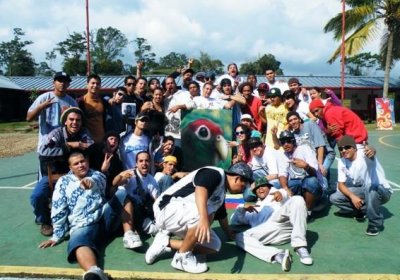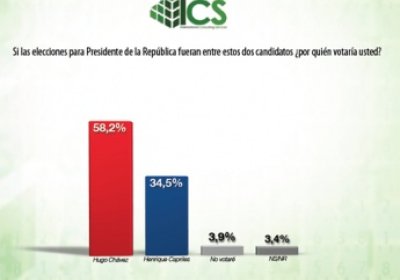Some years ago, travelling on the presidential plane of Venezulea's left-wing President Hugo Chavez of with a French friend from Le Monde Diplomatique, we were asked what we thought was happening in Europe. Was there any chance of a move to the left?
We replied in the depressed and pessimistic tones typical of the early years of the 21st century. Neither in Britain nor France, nor anywhere in the eurozone, did we see much chance of a political breakthrough.
Then maybe, said Chavez with a twinkle, they could come to our assistance.
Venezuela
On more than one occasion, I have referred to the infamous agreement which the United States imposed on Latin American and Caribbean countries when the Organisation of American States was founded in Bogota on April 30, 1948.
Just by sheer coincidence I happened to be there on that date, helping to organise a Latin American students’ congress with the objective of struggling against European colonialism and the bloody tyranny imposed by the United States in this hemisphere.
Much of the world’s population continues to pay for the global financial crisis with their jobs, homes, education and health. Bankers continue to award themselves millions of dollars in bonuses, such as the British bank Barclay’s chief executive, who last year earned US$26.9 million.
The Venezuelan government, however, has raised the percentage of net profits banks must grant in credit to national social programs. In doing so, it is demonstrating to the rest of the world what a regulated and socially oriented banking system could look like.
Self-employed and informal sector workers in Venezuela are to be included in the nation’s social security system, after an announcement by President Hugo Chavez on April 21.
The Law of Social Security will be changed to allow informally employed workers to register with the Venezuelan Institute of Social Security (IVSS) and make social security payments.
Environmentalists seem to realise that they have some stake in a fight such as the Ecuador-Chevron lawsuit.
That case, which Chevron has recently moved to an international arbitration panel to try to avoid a multibillion-dollar penalty handed down by Ecuadorian courts, is about whether a multinational oil corporation will have to pay damages for pollution, for which it is responsible. Most environmentalists figure that would be a good thing.
“April 13, the great day of victory 10 years ago, opened the way to the independence and unity of our Latin America and the Caribbean,” Venezuela's socialist President Hugo Chavez said on April 13. He was speaking during a commemoration of the uprising that toppled a short-lived military coup that aimed to crush the Chavez presidency .
“We showed that a people united will never be defeated.”
Venezuela’s national minimum wage is to rise 32.25% this year, Venezuelan President Hugo Chavez said on April 7.
In a televised address from Miraflores presidential palace in Caracas, Chavez said the wage rise would take place in two phases, ― first on May 1 and then a further rise on September 1.
Ever since the US-supported coup attempt against President Hugo Chavez in Venezuela failed in April 2002, Washington has been pursuing a variety of strategies to remove the overwhelmingly popular South American head of state from power.
The oil-rich South American nation of Venezuela is in the midst of a complicated and contradictory process of social transformation. The revolutionary movement, headed by President Hugo Chavez, is redistributing wealth, bringing key industries under state ownership and promoting experiments in direct, participatory democracy. The aim of the Bolivarian revolution is to build a “socialism for the 21st century”.
“The confrontation here isn’t between Chavez and this little man, it’s the bourgeoisie against the people, the empire against the country”, Venezuelan President Hugo Chavez said on February 16.
Chavez was referring to his newly-nominated presidential opponent, Henrique Capriles Radonski. He was pointing to the class battle that lies behind the looming presidential elections scheduled for October 7.
Member countries of Latin America’s alternative integration bloc, the Bolivarian Alliance for the Peoples of Our America (ALBA), met for its 11th summit in Caracas on February 4 and 5 to discuss advancing the organisation.
ALBA is made up of the governments of Venezuela, Cuba, Bolivia, Ecuador, Nicaragua, Dominica, Saint Vincent and the Grenadines, and Antigua and Barbuda. Formed in 2004, ALBA seeks to develop trade on the basis of solidarity and cooperation.
Cutting the working day to a maximum of seven hours, eliminating subcontracted work and raising maternity leave to a period of five months were some of the proposals put forward by thousands of workers across Venezuela for the country's new Labour Law, Socialist Bolivarian Workers’ Central president Will Rangel said on January 31.
Venezuelan workers have been mobilising across the country since President Hugo Chavez announced his government would overhaul the country’s Labour Law (LOT). This came after a sustained campaign by workers to have the law changed.
- Previous page
- Page 53
- Next page




